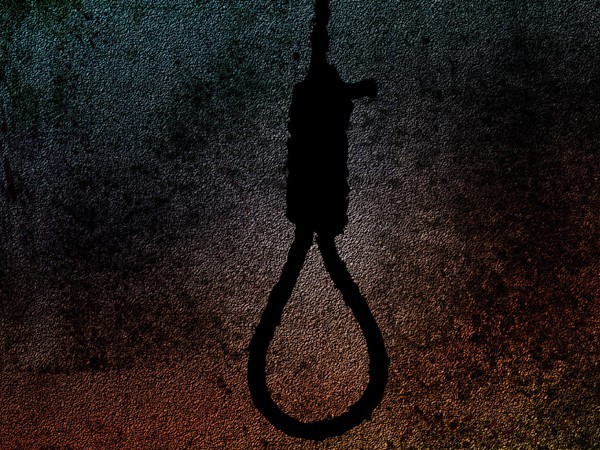UN Expert Warns of Deepening Repression and Record Executions in Post-Conflict Iran
According to the report, Iranian authorities have used the crisis as a pretext to justify sweeping emergency powers that extend state control over society.

- Country:
- Iran Islamic Rep
The United Nations has voiced grave concern over the worsening human rights situation in Iran following the June 2025 hostilities, warning that the end of external conflict has brought no reprieve to its citizens. In a report presented to the UN General Assembly, Mai Sato, the Special Rapporteur on the situation of human rights in the Islamic Republic of Iran, painted a grim picture of intensifying repression, mass executions, and erosion of fundamental freedoms.
"External Aggression Has Fueled Internal Repression"
"The Iranian people's rights to life and liberty are under unprecedented threat," Sato said, noting that the aftermath of the June conflict has emboldened authorities to expand surveillance, restrict dissent, and target minorities. "External aggression has fuelled deeper internal repression," she added, referring to the airstrikes by the United States and Israel on Iran in mid-2025.
The 12-day escalation, which Sato described as "unlawful uses of force in violation of the UN Charter," killed more than 1,100 people — including women and children — and injured over 5,600. The strikes devastated urban areas, crippling civilian infrastructure and hospitals, and forcing thousands to flee their homes. She cautioned that attacks on nuclear facilities under IAEA supervision risk "catastrophic humanitarian and environmental consequences."
Crackdown Intensifies After Conflict
According to the report, Iranian authorities have used the crisis as a pretext to justify sweeping emergency powers that extend state control over society. Measures introduced since June include mass deportations of Afghan nationals, harsh new espionage laws, and an expansion of surveillance networks to monitor activists, journalists, and religious minorities.
The Special Rapporteur warned that the crackdown has particularly targeted ethnic minorities, including Kurds, Baluchis, and Arabs, as well as members of the Baha'i faith and women's rights defenders. Thousands of individuals have reportedly been detained without due process under vaguely defined national security charges.
Record Number of Executions
Sato's report documents a dramatic surge in executions — with over 1,000 known cases reported to her office by September 2025, marking the highest number recorded in years. Many of these executions followed unfair trials, forced confessions, or convictions based on politically motivated charges.
"The scale of state executions points to a deliberate policy of fear and retribution," Sato said. "This is not justice — it is an assault on the very foundations of human dignity and rule of law."
International human rights organizations have corroborated these findings, noting that many executed individuals were arrested during protests or accused of crimes such as "spreading corruption on Earth" or "enmity against God" — charges frequently used to silence political dissent.
Transnational Repression Expands Beyond Borders
The report also sheds light on Iran's growing pattern of transnational repression, with authorities allegedly targeting dissidents abroad through intimidation, abduction attempts, and surveillance. Iranian journalists and activists living in exile have reported increased threats, including harassment of their relatives still living inside the country.
Sato called on the international community to coordinate efforts to counter such extraterritorial intimidation. "Iran's repression no longer stops at its borders," she said. "States must ensure that Iranian dissidents abroad are protected from harassment and violence."
A Call for Reform and Accountability
In her appeal, Sato urged Iranian authorities to take "immediate, concrete steps" toward restoring public trust and protecting fundamental freedoms. "This is a pivotal moment for Iran to rebuild trust with its people," she said. "Ending executions, protecting fundamental freedoms, and upholding the rule of law are essential first steps."
The Special Rapporteur called for the establishment of a moratorium on the death penalty, the release of those detained for exercising basic rights, and the protection of lawyers, journalists, and human rights defenders from state intimidation. She also pressed for fair trial guarantees and accountability for past and ongoing abuses.
The International Community's Role
Sato urged other nations to provide support for at-risk Iranian civil society groups and to ensure that international pressure focuses on human rights rather than geopolitical confrontation. "Accountability and transparency are indispensable for any path forward," she emphasized. "The Iranian people deserve peace, dignity, and justice — and the world must stand with them in that pursuit."
As Iran continues to grapple with economic hardship, political isolation, and domestic unrest, the UN report serves as a stark warning that without reform and restraint, the cycle of violence and repression could deepen further — with devastating consequences for its people and the wider region.
ALSO READ
-
Desperate Plea: Haryana Men's Ordeal in Iran Highlights Human Trafficking
-
Heroic Sea Rescue: Indian Forces Save Injured Iranian Fisherman
-
UPDATE 1-US grants India six-month sanctions waiver to run Iran's Chabahar port, New Delhi says
-
UPDATE 1-UK sanctions Iranian banker for supporting Iran's Guards
-
Indian Coast Guard rescues injured Iranian national from fishing vessel









